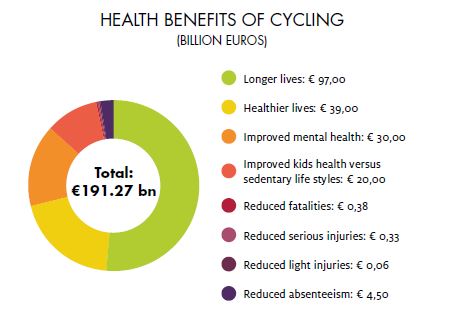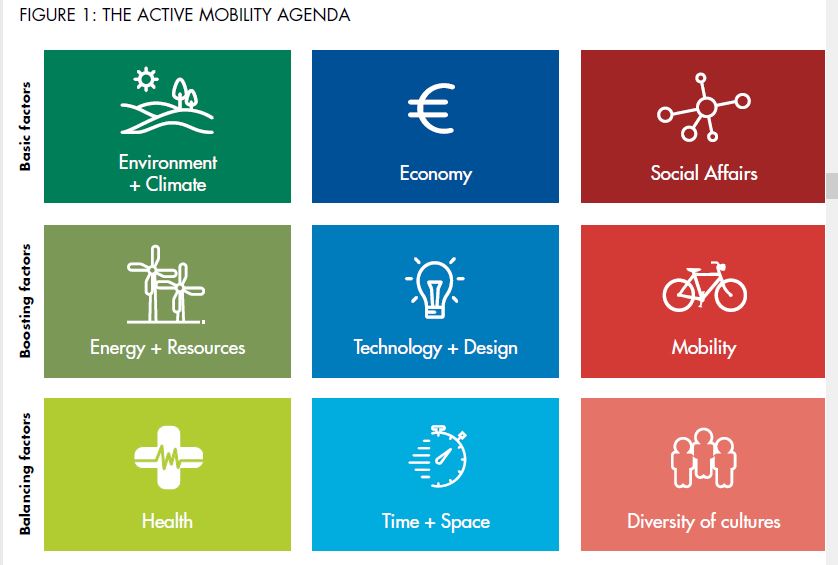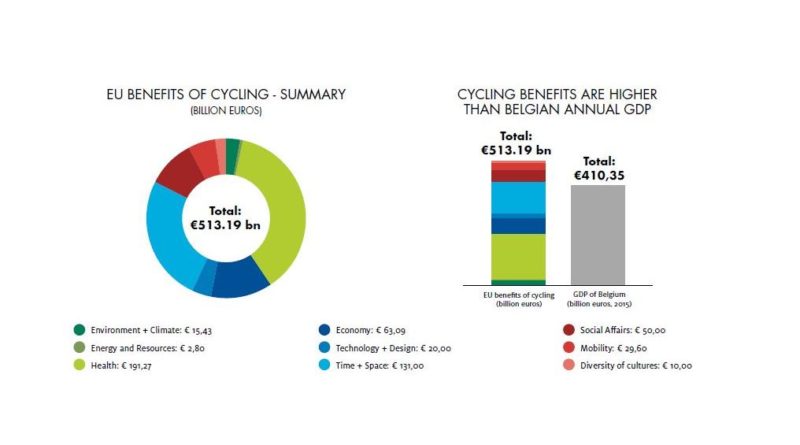ECF places cycling’s economic contribution at €1,000 per head, per year, across EU 28
Published today, the European Cyclists’ Federation is to present an in depth report alongside its members in which it will be revealed that cycling’s economic contribution is worth more than €1,000 per inhabitant of the 28 EU member states, per year.
It is widely accepted that cycling’s return on investment has been demonstrated to be many fold, even having demonstrated a high of 35:1 in one study. The ECF’s data is however expected to make a stronger case than ever for building for active travel, valuing cycling’s contribution at a tally political figures should’t be able to ignore – an annual €513.19 billion across member states. Cycling organisations across Europe regularly submit their data to the ECF who represent the industry when active travel is on the agenda across member states.
Broken into nine parts, fresh data will calculate cycling’s environmental impact alone to be worth €15.43, with huge savings in Co2 amounting to 15,248,644,552 kg since 2011. At a cost calculated to be €144.63 per ton, the impact of active travel has ramifications socially, on public health and climate. 
On health, where €191.27 billion is said to be associated to cycling’s benefits, the 80,805,063,768 kilometres said to have been tallied up over the study period are worth 27,860 prevented deaths. This calculation is based on the World Health Organisation’s Health Economic Assessment Tool for Walking and Cycling, which is available online.
The overall figure has been reached based both on concrete evidence (accounting for€239.99 billion), calculations based on available evidence (€90.7 billion) and estimations based on the best indications available (€182.5 billion). 
As recently as 2013 the benefits were estimated in a similar report by the ECF to be in the region of €205 to €217 billion. In the years since, cycling has, for the most part, grown its modal share across Europe, albeit at vastly differing rates. Levels are however lower in most places than has historically been the case before private motoring took hold. The World Health Organisation is among those calling for a reversal of this trend, instructing Governments to prioritise active travel development in order to combat a diabetes epidemic.
Indeed the report will consider growth in cycling for transport and leisure in the UK, something which new Bicycle Association data will soon reveal to be worth £2.6 billion annually.
An ECF spokesperson told CyclingIndustry.News: “The present report clearly shows that the benefits of cycling occur not only in specific, isolated fields like transport or environmental policy, but in many other areas where the EU has competences as well, like industrial policy, employment, health and social policy.
“An integrated EU cycling strategy that includes these fields and considers cycling in all relevant policy areas will therefore enable the whole EU to reap these benefits in the future, including the countries which currently have low rates of cycling. In some areas, we have identified benefits of cycling, but were not able to give any calculation or estimation yet. More qualitative and quantitative research is needed in those fields to quantify these benefit. The aim of this report is therefore also to encourage further research on the subject in order to draw a more precise picture of the economic benefits of cycling in the future.”
The report’s findings will be discussed in full at a meet of members in Brussels from 12 mid-day today and can be dipped into in detail here.
The ECF’s findings will further be added to our database of information for the cycle campaigner to build a case for active travel in their area.



